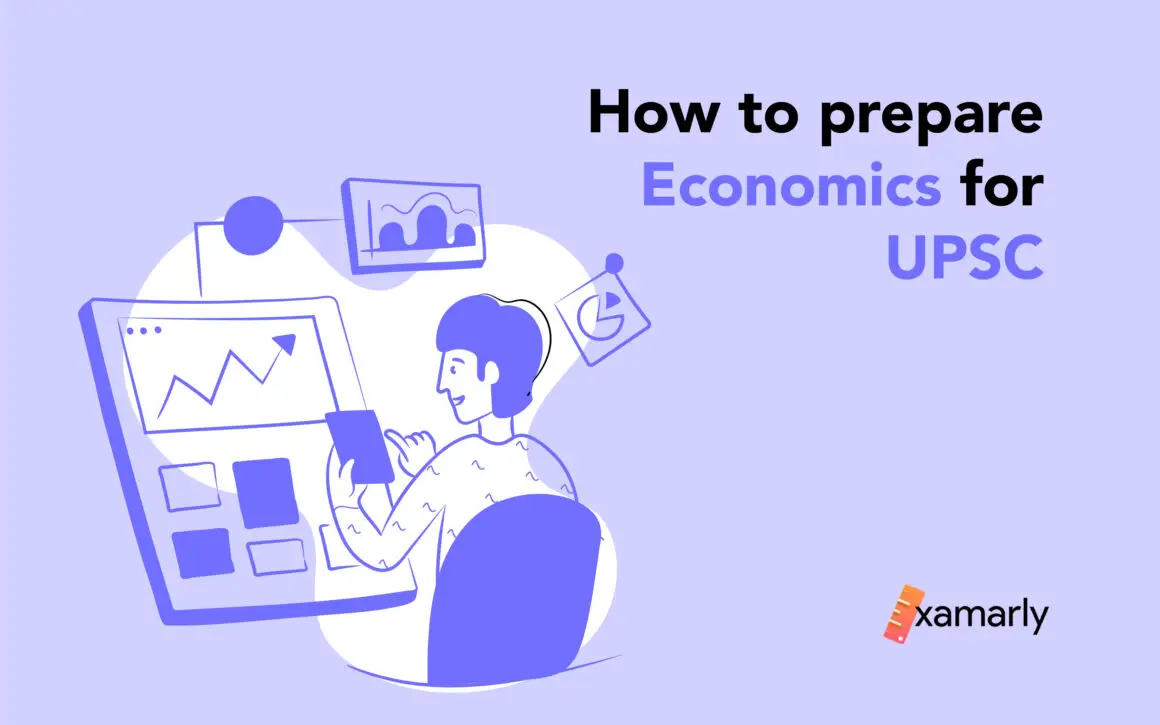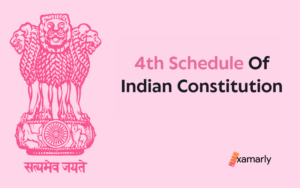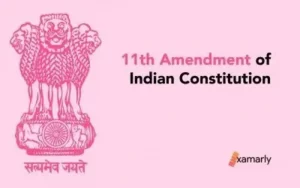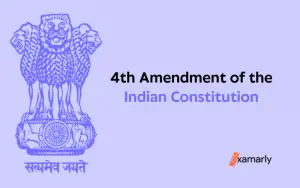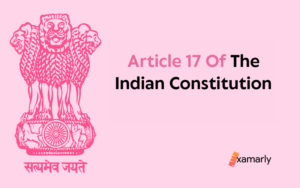Are you wondering how to prepare economics for UPSC examination? The UPSC (Union Public Service Commission) examination is considered one of the toughest and most prestigious exams in India.
It requires a strong foundation in economics, as the subject plays a crucial role in determining the overall performance of a candidate.
To ace this section, it is essential to have a thorough understanding of the basic concepts, a sound knowledge of current economic events, and an ability to apply economic theories to real-life situations.
In this article, we will delve into the key strategies and techniques to help you prepare for the economics segment of the UPSC exam and succeed in your journey towards a rewarding career in public service.
- Definition of Economy in UPSC
- Role of Economics in the UPSC Examination
- Mark Distribution for Economics in UPSC
- Economics Syllabus for Preliminary Stage
- Economics Syllabus for Mains
- Important Points to Prepare Economics for UPSC
- 6 Strategies for Preparing Economics for the UPSC Exam
- 1. Start with NCERT Books
- 2. Supplement with IGNOU/NIOS Notes
- 3. Cover Basic Books
- 4. Current Affairs
- 5. Economics in Newspapers
- 6. Attempt Mock Tests
- Suggested Reading List for UPSC Economics Syllabus Preparation for the Civil Services Examination
- Conclusion
- Frequently Asked Questions
- What are the best books to prepare for economics for the UPSC examination?
- How can I supplement my preparation with current affairs?
- How can I prepare economics with IGNOU/NIOS notes?
- How important are current affairs for economics in the UPSC examination?
- Can I prepare economics with just NCERTs?
- How can I prepare economics with newspapers?
- How often should I revise the concepts while preparing for economics in the UPSC examination?
- How can I improve my answer writing skills in economics for the UPSC examination?
- Can I prepare economics with online resources?
- How much time should I dedicate to preparing for economics for the UPSC examination?
Definition of Economy in UPSC
In the context of the UPSC (Union Public Service Commission) exam, the term “economy” refers to the study of the production, distribution, exchange, and consumption of goods and services in a society.
This includes the analysis of the various factors that affect the economy such as government policies, market conditions, international trade, and technological advancements. The UPSC Economics syllabus focuses on the study of the Indian economy, its growth and development, and the various issues and challenges facing it.
Role of Economics in the UPSC Examination
Economics plays a significant role in the UPSC (Union Public Service Commission) examination as it is one of the optional subjects that candidates can choose to specialize in.
The subject is also an integral part of the General Studies paper in both the preliminary and main examinations. In the preliminary exam, economics is tested through multiple-choice questions that assess a candidate’s understanding of basic economic concepts, theories, and current events.
In the main examination, economics is evaluated through essay writing and case study analysis, where a candidate’s ability to apply economic principles to real-life situations and analyze data is tested.
In the UPSC exam, economics is seen as a tool to understand the functioning of the Indian economy, its strengths and weaknesses, and the impact of government policies on various sectors of the economy.
A good understanding of economics can also help candidates analyze issues related to poverty, unemployment, inflation, trade, social sector initiatives, economic growth and investment, among others.
In conclusion, economics is an important subject for the civil services exam as it provides a sound understanding of the Indian economy and helps in developing analytical and critical thinking skills, essential for a career in public service.
Related: Difference Between Sociology And Economics
Mark Distribution for Economics in UPSC
| Examination Stage | Subject | Marks Distribution |
|---|---|---|
| Prelims Exam | General Studies (Paper I) | 100 marks |
| Economics (Multiple Choice Questions) | 20-30 marks | |
| Main Exam | General Studies (Paper III) | 250 marks |
| Economics (Essay Writing & Case Study Analysis) | 100 marks |
Economics Syllabus for Preliminary Stage
The economics syllabus for the UPSC (Union Public Service Commission) Prelims examination covers the following topics:
Microeconomics: Consumer behaviour, market structures, production and cost analysis, market failure, and welfare economics.
Macroeconomics: Inflation, growth, monetary policy, fiscal policy, and balance of payments.
Indian Economy: Structure and performance of the Indian economy, poverty, unemployment, income distribution, and agricultural and industrial development.
International Economics: Globalization, trade, international monetary systems, and foreign exchange markets.
Development Economics: Development strategies, financial institutions, human development, economic reforms, and economic growth.
Read More: Difference Between Economy And Economics
Economics Syllabus for Mains
The main focus areas in the UPSC mains syllabus include the Indian Economy and its various issues related to planning, mobilization of resources, development, growth, and employment.
Other important areas of focus include inclusive growth, budgeting, agriculture, food processing, land reforms, the effects of liberalization, infrastructure, sustainable development and investment models.
The syllabus also touches upon major cropping patterns, different types of irrigation, the transport and marketing of agricultural produce, food security as well as the economics of animal-rearing and technology missions.
Similar Post: Economics Optional For UPSC
Important Points to Prepare Economics for UPSC
There are some points that you should notice before you start preparing for the Indian Economy :
- The prelims section of Indian Economy in UPSC CSE comprises concept-based questions. IAS Prelims demands conceptual clarity but with an objective approach. You can prepare easily for it as it also covers your current affairs section.
- Acquire a strong grasp of fundamental economic concepts and terms including Gross Domestic Product (GDP), Repo rate, Reverse Repo rate, Cash Reserve Ratio (CRR), Statutory Liquidity Ratio (SLR), inflation indices, growth, inclusion, and development. Familiarize yourself with their real-world applications and how they impact day-to-day scenarios.
- As mentioned in the previous point your current affairs section overlaps with subjects like Economics as most of the questions arise from the current economic scenario of the Country and various microeconomic policies.
- For the Mains exam question, NCERT books may not help you fully as it is highly conceptual and Mains demands a subjective approach. However, questions from the Indian economy demand both facts and figures along with your opinion. Still, your answer cannot be highly subjective as the Economy can’t be explained based on your sentiments. You need to prove your point with the help of an unbiased technical opinion.
- People from mathematics backgrounds may feel quite comfortable as they are good with numbers.
- In UPSC Economics preparation, NITI Aayog is a significant area of focus, as it influences the economic policies and growth of the country. Understanding its role, objectives, policies, and initiatives is crucial for candidates appearing for the UPSC Economics exam.
- It is important to have a good understanding of the various components of fiscal policy such as government spending, tax revenue, budget deficits, and public debt.
You can check some of the questions asked in previous years’ questions papers so that you can get some idea :
- Give a detailed explanation of the policy adopted by the Government of India to tackle the challenges faced by the food processing sector. (UPSC CSE MAINS, 2019)
- Examine the role of supermarkets in the supply chain management of fruits, vegetables, and food items. How do they eliminate the number of intermediaries? (UPSC CSE MAINS, 2018)
- Comment on the important changes introduced in respect of the Long term Capital Gains Tax (LCGT) and Dividend Distribution Tax (DDT) in the Budget for 2018-2019. (UPSC CSE MAINS, 2019)
6 Strategies for Preparing Economics for the UPSC Exam
Here are some points to help you prepare for the UPSC CSE Economy syllabus and you can also speed up your preparation by following these points:
1. Start with NCERT Books
Starting with NCERTs is a recommended approach for preparing economics for the UPSC exam. NCERT textbooks are considered to be the most comprehensive and reliable source of information for students.
Begin by identifying the relevant NCERT textbooks, reading them thoroughly, practising solving questions, revising regularly, and seeking help if needed. By following these steps, you can lay a strong foundation for your economics preparation and succeed in the UPSC exam.
2. Supplement with IGNOU/NIOS Notes
Supplementing your preparation with IGNOU (Indira Gandhi National Open University) or NIOS (National Institute of Open Schooling) notes can greatly enhance your understanding of economics while preparing for the UPSC (Union Public Service Commission) examination.
These notes provide additional information and insights on various economic concepts, theories, and current events that can supplement your NCERT textbook preparation.
IGNOU/NIOS notes often cover economic concepts in more detail and provide real-life examples and applications to help you gain a deeper understanding of the subject. Additionally, these notes are frequently updated to include the latest economic events and often include practice questions to help you test your understanding.
By supplementing your preparation with IGNOU/NIOS notes, you can broaden your knowledge of economics, enhance your understanding of complex concepts, and increase your chances of success in the UPSC exam.
It is important to note that while supplementing your preparation with these notes can be beneficial, they should not be relied upon as the sole source of information.
It is important to maintain a balance and also continue to refer to NCERT textbooks, as they are considered to be the most comprehensive and reliable source of information for students preparing for the UPSC exam.
Related Post: Economics Optional Syllabus For UPSC
3. Cover Basic Books
When preparing for the UPSC (Union Public Service Commission) examination, it is important to start with the basic books to gain a solid understanding of the subject. Here are some of the recommended basic books for economics in the UPSC exam:
- Indian Economic Development by Datt and Sundharam: This book provides a comprehensive overview of the Indian economy, including its historical development, current state, and prospects.
- Introductory Microeconomics by Ahuja: This book provides a basic introduction to microeconomics, including its fundamental concepts, theories, and applications.
- Principles of Macroeconomics by Mankiw: This book provides a basic introduction to macroeconomics, including its fundamental concepts, theories, and applications.
- Indian Economy by Ramesh Singh: This book provides a comprehensive overview of the Indian economy, including its historical development, current state, and prospects.
4. Current Affairs
Staying updated, making notes, focusing on the Indian context, discussing with others, and testing yourself are key to preparing for economics in current affairs for the UPSC (Union Public Service Commission) examination.
Stay informed by regularly reading economics-related news and publications. Make organized notes and focus on the Indian context. Discussing current affairs with others helps in developing perspectives and arguments.
Current affairs will help you largely when you prepare economics for UPSC examination.
5. Economics in Newspapers
Reading economics-related news and articles in newspapers regularly, focusing on the Indian context, highlighting important information, discussing with others, and testing yourself is the key to preparing economics with newspapers for the UPSC (Union Public Service Commission) examination.
Stay informed, make organized notes, and test yourself regularly to reinforce understanding and identify areas for improvement. Effective preparation with newspapers can increase the chances of success in the UPSC exam.
Related: Difference Between Economic And Non Economic Activities
6. Attempt Mock Tests
When you prepare for economics for UPSC, you should concentrate largely on the mock tests. Mock tests are essential for preparing for the UPSC Economics exam.
They help to assess preparation, manage time, understand the exam pattern, improve accuracy, and build confidence.
Regular practice through mock tests allows candidates to identify their strengths and weaknesses, work on them, and improve their performance.
By simulating the actual examination environment, mock tests provide an opportunity to hone the skills required to succeed in the UPSC Economics exam.
Related: How many Mock Tests before UPSC Prelims should you take?
Suggested Reading List for UPSC Economics Syllabus Preparation for the Civil Services Examination
- NCERTs (Class X, XI, and XII)
- Indian Economy by Ramesh Singh.
- Indian Economy: Performance and Policies by Uma Kapila.
- Indian Economy Key Concepts by Sankarganesh Karuppiah
To know about the standard booklist for UPSC preparation of other subjects, the books are strategically designed and planned to cover every topic related to UPSC CSE preparation like economic policies, resource policies, fiscal policy, industrial policy, land reforms, investment models, economic surveys, and many more with conceptual understanding in detail.sit the linked article.
Some of the additional study material include The Hindu and Economic Times newspapers along with government publications like Yojna, Kurukshetra, and India Year Book.
To be honest, there is no speedy way to study any subject, be it economics or anything else. For cracking any exam, you need to realize the importance of basic concepts. But yes, a good hold on the foundation will make your preparation efficient.
Conclusion
To prepare economics for UPSC (Union Public Service Commission) examination, it is important to adopt a systematic and comprehensive approach. The NCERTs and basic books form the foundation of your preparation, and supplementing with IGNOU/NIOS notes can provide additional insights and perspectives.
Preparation with current affairs and newspapers can help you stay updated with the latest developments in the field of economics. A consistent and dedicated effort is key to success in the UPSC exam.
Regular revision and testing yourself can help you assess your understanding and identify areas for improvement. With the right approach, you can excel in economics in the UPSC examination and achieve your career goals.
In this blog, we have also recommended essential books for economics preparation, hope we have helped you to enhance your UPSC preparation.
Frequently Asked Questions
What are the best books to prepare for economics for the UPSC examination?
The best books to prepare for economics for the UPSC examination are the NCERT textbooks, the Indian Economic Survey, and “Indian Economy” by Ramesh Singh.
How can I supplement my preparation with current affairs?
To supplement your preparation with current affairs, you can read economics-related news and articles in newspapers, stay updated with the latest economic developments, and discuss current events with others to understand different perspectives.
How can I prepare economics with IGNOU/NIOS notes?
To prepare economics with IGNOU/NIOS notes, you can supplement your preparation with the IGNOU/NIOS material, which can provide additional insights and perspectives.
How important are current affairs for economics in the UPSC examination?
Current affairs play an important role in economics for the UPSC examination as it helps keep you informed of the latest developments in the field of economics and helps you understand the Indian context.
Can I prepare economics with just NCERTs?
While NCERTs form the foundation of your preparation, supplementing with other materials, such as IGNOU/NIOS notes and current affairs, can provide additional insights and perspectives.
How can I prepare economics with newspapers?
To prepare economics with newspapers, you can read economics-related news and articles, focus on the Indian context, make notes, discuss with others, and test yourself regularly.
How often should I revise the concepts while preparing for economics in the UPSC examination?
It is recommended to revise the concepts regularly, at least once a week, to reinforce your understanding and retain the information.
How can I improve my answer writing skills in economics for the UPSC examination?
To improve your answer writing skills in economics for the UPSC examination, you can practice writing answers to practice questions, seek feedback, and read sample answers to understand what is expected.
Can I prepare economics with online resources?
Yes, you can prepare economics with online resources, such as online study materials, videos, and practice questions.
How much time should I dedicate to preparing for economics for the UPSC examination?
The amount of time you should dedicate to preparing economics for the UPSC examination will depend on various factors, such as your current knowledge of the subject, the number of subjects you are preparing for, and your exam preparation strategy. It is recommended to allocate at least 3-4 hours daily for effective preparation.


